Carbon monoxide is an odorless, tasteless, invisible, toxic gas that can sneak up on you like a ghost if you don't take the right precautions. It's called the silent killer because you'll only know its presence after it begins its assault. The risk of carbon monoxide is too serious to ignore. Here's what you need to know. Symptoms of Carbon Monoxide ExposureThe reason this gas is so deadly is the way our bodies respond to it. Red blood cells absorb carbon monoxide instead of oxygen, starving organs, and tissues of much-needed oxygen. Symptoms of exposure include dizziness, nausea, weakness, blurred vision, confusion, shortness of breath, and headaches. If exposure goes on too long, or if concentrations are too high, loss of consciousness and death can occur. Long-term effects include brain and heart damage. Tips to keep yourself safeNever Run Your Car with the Garage Door ClosedAlways open the garage door before starting up. Pull your car out all the way to warm it up and make sure the garage door is closed while you run the engine. Don't Burn Fuels Indoors Without Proper VentilationDuring the ice storm in southern Ontario in 2013, thousands of people lost power. In order to stay warm, some resorted to turning on their barbecue grills indoors. Unfortunately, the subsequent buildup of carbon monoxide cost them their lives. This could have been prevented with the proper precautions. Never burn fuel indoors without proper ventilation and even when running equipment outside, maintain a safe distance from windows, doors, and air intakes. Maintain Your Furnace or BoilerIf your furnace’s burner isn't working properly, it can produce higher levels of carbon monoxide. A leaky exhaust or heat exchanger can introduce the gas into your home so maintenance is key for reducing the risk of carbon monoxide buildup in your home. Also, ensure that your heating equipment receives enough air for full combustion to take place. Keep air intake and exhaust clear and avoid using your furnace room for storage. Place Detectors in the Right PlacesIn addition to taking precautions to prevent carbon monoxide buildup, you need working detectors in the right locations. Install carbon monoxide detectors in hallways outside bedrooms and in locations near fuel-burning equipment. Test them annually and replace them as soon as the end-of-life indicator alarms or every five to seven years. If your alarm ever goes off, take it seriously. Get to safety immediately and call for help. If you're concerned about your family's risk to carbon monoxide exposure at home, give us a call and we can help keep you safe. | 
